
The current pandemic has created a heightened awareness of the sacrifices made by nurses, doctors, first responders and other caregivers in the face of unprecedented circumstances. Apart from the threat of physical harm, many in the healthcare profession as well as social change professions such as activists and teachers face mental and emotional challenges as well.
The Wellbeing Project, an innovative collaboration created in 2013 that has been co-created with expertise from Ashoka, the Impact Hub Network, Porticus, the Skoll Foundation, Synergos and Esalen Institute, was designed to explore ways to better support the greater wellbeing of social change agents.
“What stands out for me is the perception in the field of social change that it may be oriented toward self-sacrifice and martyrdom—that self-care and engaging in one’s inner journey was seen as a luxury,” says The Wellbeing Project Lead Aaron Pereira. “So what this report puts front and center is how important self-care is for all of us and how that profoundly changes everything, including the social change work we do.”
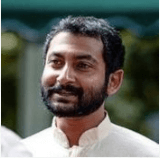
The timing of the The Wellbeing Project study could not be more relevant. In the broader landscape of change agents, growing reports of increasing levels of burnout and stress coupled with high rates of depression and the early onset of chronic illness have dominated discussions worldwide. Less reported has been distress within personal and professional relationships of social change agents. And now as the call for caring for one’s own wellbeing as a necessary step in order to better care for others has become louder, individuals finding themselves having to care for family and community members impacted by COVID-19 are beginning to seek additional support.
The study includes findings from discussions of more than 300 changemakers from around 55 countries as well as insights from a smaller group of 60 participants who participated in an 18-month cohort experience. The findings validated The Wellbeing Project’s initial hypothesis that inner wellbeing translates to a better and healthier relationship with self, one’s social environment and one’s work.
"People on the front lines of COVID-19 are often our changemakers working with some of the most vulnerable populations and today, more than ever, the consciousness of wellbeing is required of all of us in order to maintain the stamina and compassion necessary to serve those in need and retain our humanity," says Esalen Director of Programs Cheryl Fraenzl. "The findings of this study confirm that taking care of ourselves in all the ways that are important directly impacts the quality of our contributions and the ability to go the extra mile when necessary. Even within the Esalen teams, we've found it important to build wellbeing time into the workday to ensure that when we are working, we're able to focus and approach the projects at hand feeling renewed. During these challenging times, I hope we all take a moment to reflect on these findings, our own wellbeing and take positive action if our intentions are not in alignment with ourselves, others or our daily focus."
Other study highlights include:
“I now feel like [wellbeing] is not so much about alleviating suffering. In fact, sometimes it’s turning toward suffering in a way that I had avoided it in the past,” observed one Wellbeing cohort member. “It’s much more about how do I free myself enough to be present to it, whether it’s physical, mental, or spiritual? To open myself up to my options around how to meet that—which might be escape, digging in, or not necessarily changing anything, but having awareness around it.”
By the end of their 18-month cohort journey, most participants had adopted new approaches to work. They noted prioritizing their wellbeing as well as the wellbeing of their colleagues and peers. They spoke of new ways of connecting with donors and other organizations.
After shifting their definitions of success, they were able to prioritize their work instead of scaling it, and go deeper, not just broader. What’s more, participants described shifts in their leadership styles as a result of partially shifting their responsibility onto staff and making a conscious effort to empower them through capacity-building.
“We also saw that resilience became a very different and a more profound quality that people have. The feedback that we kept hearing from our participants was that if it wasn’t for this work that they’ve done, it would have been very difficult and different for them to deal with this [COVID-19] situation right now,” added Aaron.
“Wellbeing is a lifelong journey. We keep exploring and we keep engaging with ourselves. It’s not a one-time thing. This is what Esalen knows all so well. We are continuing to journey, continuing to work on our inner selves. It becomes a way of being in how we engage with our inner and outer lives on an ongoing basis.”
The complete study is available at http://www.wellbeingproject.org.
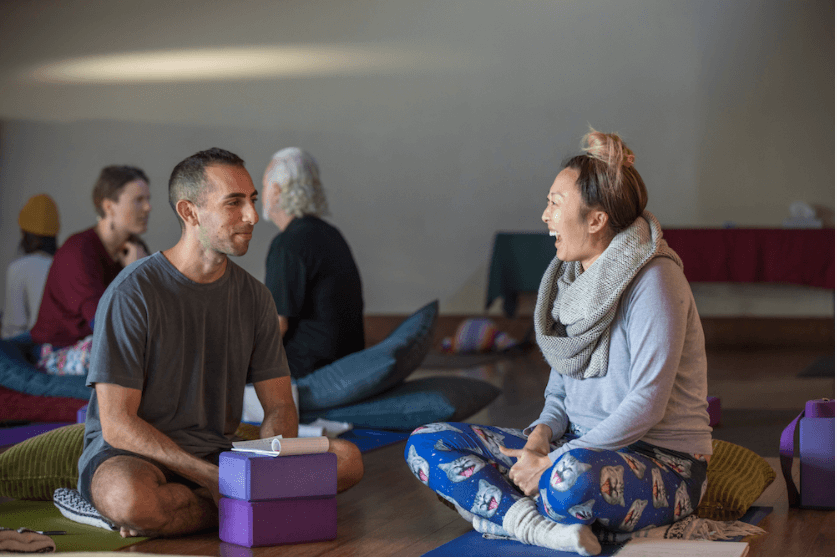
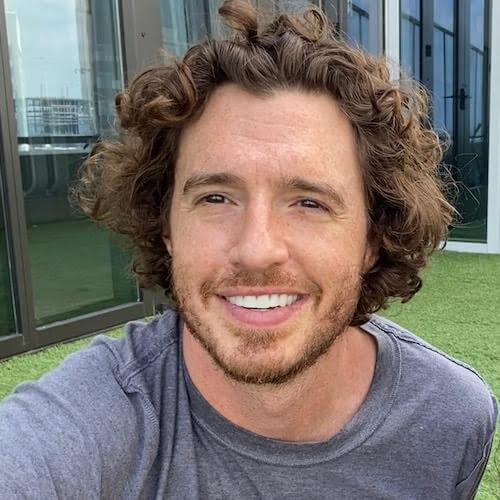
“Remembering to be as self compassionate as I can and praying to the divine that we're all a part of.”
–Aaron
“Prayer, reading, meditation, walking.”
–Karen
“Erratically — which is an ongoing stream of practice to find peace.”
–Charles
“Try on a daily basis to be kind to myself and to realize that making mistakes is a part of the human condition. Learning from our mistakes is a journey. But it starts with compassion and caring. First for oneself.”
–Steve
“Physically: aerobic exercise, volleyball, ice hockey, cycling, sailing. Emotionally: unfortunately I have to work to ‘not care’ about people or situations which may end painfully. Along the lines of ‘attachment is the source of suffering’, so best to avoid it or limit its scope. Sad though because it could also be the source of great joy. Is it worth the risk?“
–Rainer
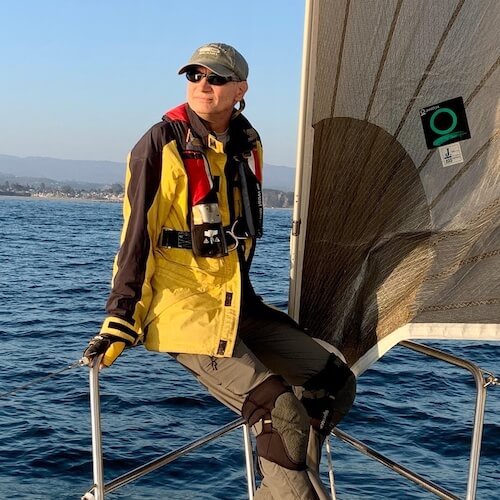

“It's time for my heart to be nurtured on one level yet contained on another. To go easy on me and to allow my feelings to be validated, not judged harshly. On the other hand, to let the heart rule with equanimity and not lead the mind and body around like a master.”
–Suzanne
“I spend time thinking of everything I am grateful for, and I try to develop my ability to express compassion for myself and others without reservation. I take time to do the things I need to do to keep myself healthy and happy. This includes taking experiential workshops, fostering relationships, and participating within groups which have a similar interest to become a more compassionate and fulfilled being.“
–Peter
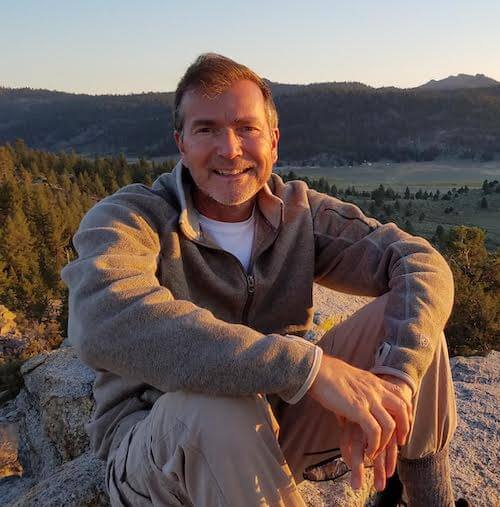
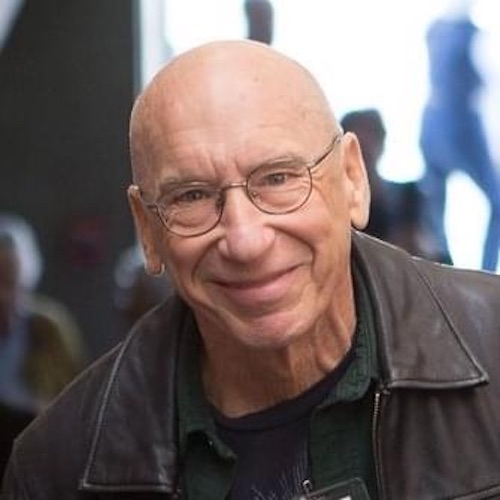
“Self-forgiveness for my own judgments. And oh yeah, coming to Esalen.”
–David B.
“Hmm, this is a tough one! I guess I take care of my heart through fostering relationships with people I feel connected to. Spending quality time with them (whether we're on the phone, through messages/letters, on Zoom, or in-person). Being there for them, listening to them, sharing what's going on with me, my struggles and my successes... like we do in the Esalen weekly Friends of Esalen Zoom sessions!”
–Lori

“I remind myself in many ways of the fact that " Love is all there is!" LOVE is the prize and this one precious life is the stage we get to learn our lessons. I get out into nature, hike, camp, river kayak, fly fish, garden, I create, I dance (not enough!), and I remain grateful for each day, each breath, each moment. Being in the moment, awake, and remembering the gift of life and my feeling of gratitude for all of creation.”
–Steven
“My physical heart by limiting stress and eating a heart-healthy diet. My emotional heart by staying in love with the world and by knowing that all disappointment and loss will pass.“
–David Z.
Today, September 29, is World Heart Day. Strike up a conversation with your own heart and as you feel comfortable, encourage others to do the same. As part of our own transformations and self-care, we sometimes ask for others to illuminate and enliven our hearts or speak our love language.
What if we could do this for ourselves too, even if just for today… or to start a heart practice, forever?

The current pandemic has created a heightened awareness of the sacrifices made by nurses, doctors, first responders and other caregivers in the face of unprecedented circumstances. Apart from the threat of physical harm, many in the healthcare profession as well as social change professions such as activists and teachers face mental and emotional challenges as well.
The Wellbeing Project, an innovative collaboration created in 2013 that has been co-created with expertise from Ashoka, the Impact Hub Network, Porticus, the Skoll Foundation, Synergos and Esalen Institute, was designed to explore ways to better support the greater wellbeing of social change agents.
“What stands out for me is the perception in the field of social change that it may be oriented toward self-sacrifice and martyrdom—that self-care and engaging in one’s inner journey was seen as a luxury,” says The Wellbeing Project Lead Aaron Pereira. “So what this report puts front and center is how important self-care is for all of us and how that profoundly changes everything, including the social change work we do.”

The timing of the The Wellbeing Project study could not be more relevant. In the broader landscape of change agents, growing reports of increasing levels of burnout and stress coupled with high rates of depression and the early onset of chronic illness have dominated discussions worldwide. Less reported has been distress within personal and professional relationships of social change agents. And now as the call for caring for one’s own wellbeing as a necessary step in order to better care for others has become louder, individuals finding themselves having to care for family and community members impacted by COVID-19 are beginning to seek additional support.
The study includes findings from discussions of more than 300 changemakers from around 55 countries as well as insights from a smaller group of 60 participants who participated in an 18-month cohort experience. The findings validated The Wellbeing Project’s initial hypothesis that inner wellbeing translates to a better and healthier relationship with self, one’s social environment and one’s work.
"People on the front lines of COVID-19 are often our changemakers working with some of the most vulnerable populations and today, more than ever, the consciousness of wellbeing is required of all of us in order to maintain the stamina and compassion necessary to serve those in need and retain our humanity," says Esalen Director of Programs Cheryl Fraenzl. "The findings of this study confirm that taking care of ourselves in all the ways that are important directly impacts the quality of our contributions and the ability to go the extra mile when necessary. Even within the Esalen teams, we've found it important to build wellbeing time into the workday to ensure that when we are working, we're able to focus and approach the projects at hand feeling renewed. During these challenging times, I hope we all take a moment to reflect on these findings, our own wellbeing and take positive action if our intentions are not in alignment with ourselves, others or our daily focus."
Other study highlights include:
“I now feel like [wellbeing] is not so much about alleviating suffering. In fact, sometimes it’s turning toward suffering in a way that I had avoided it in the past,” observed one Wellbeing cohort member. “It’s much more about how do I free myself enough to be present to it, whether it’s physical, mental, or spiritual? To open myself up to my options around how to meet that—which might be escape, digging in, or not necessarily changing anything, but having awareness around it.”
By the end of their 18-month cohort journey, most participants had adopted new approaches to work. They noted prioritizing their wellbeing as well as the wellbeing of their colleagues and peers. They spoke of new ways of connecting with donors and other organizations.
After shifting their definitions of success, they were able to prioritize their work instead of scaling it, and go deeper, not just broader. What’s more, participants described shifts in their leadership styles as a result of partially shifting their responsibility onto staff and making a conscious effort to empower them through capacity-building.
“We also saw that resilience became a very different and a more profound quality that people have. The feedback that we kept hearing from our participants was that if it wasn’t for this work that they’ve done, it would have been very difficult and different for them to deal with this [COVID-19] situation right now,” added Aaron.
“Wellbeing is a lifelong journey. We keep exploring and we keep engaging with ourselves. It’s not a one-time thing. This is what Esalen knows all so well. We are continuing to journey, continuing to work on our inner selves. It becomes a way of being in how we engage with our inner and outer lives on an ongoing basis.”
The complete study is available at http://www.wellbeingproject.org.


“Remembering to be as self compassionate as I can and praying to the divine that we're all a part of.”
–Aaron
“Prayer, reading, meditation, walking.”
–Karen
“Erratically — which is an ongoing stream of practice to find peace.”
–Charles
“Try on a daily basis to be kind to myself and to realize that making mistakes is a part of the human condition. Learning from our mistakes is a journey. But it starts with compassion and caring. First for oneself.”
–Steve
“Physically: aerobic exercise, volleyball, ice hockey, cycling, sailing. Emotionally: unfortunately I have to work to ‘not care’ about people or situations which may end painfully. Along the lines of ‘attachment is the source of suffering’, so best to avoid it or limit its scope. Sad though because it could also be the source of great joy. Is it worth the risk?“
–Rainer


“It's time for my heart to be nurtured on one level yet contained on another. To go easy on me and to allow my feelings to be validated, not judged harshly. On the other hand, to let the heart rule with equanimity and not lead the mind and body around like a master.”
–Suzanne
“I spend time thinking of everything I am grateful for, and I try to develop my ability to express compassion for myself and others without reservation. I take time to do the things I need to do to keep myself healthy and happy. This includes taking experiential workshops, fostering relationships, and participating within groups which have a similar interest to become a more compassionate and fulfilled being.“
–Peter


“Self-forgiveness for my own judgments. And oh yeah, coming to Esalen.”
–David B.
“Hmm, this is a tough one! I guess I take care of my heart through fostering relationships with people I feel connected to. Spending quality time with them (whether we're on the phone, through messages/letters, on Zoom, or in-person). Being there for them, listening to them, sharing what's going on with me, my struggles and my successes... like we do in the Esalen weekly Friends of Esalen Zoom sessions!”
–Lori

“I remind myself in many ways of the fact that " Love is all there is!" LOVE is the prize and this one precious life is the stage we get to learn our lessons. I get out into nature, hike, camp, river kayak, fly fish, garden, I create, I dance (not enough!), and I remain grateful for each day, each breath, each moment. Being in the moment, awake, and remembering the gift of life and my feeling of gratitude for all of creation.”
–Steven
“My physical heart by limiting stress and eating a heart-healthy diet. My emotional heart by staying in love with the world and by knowing that all disappointment and loss will pass.“
–David Z.
Today, September 29, is World Heart Day. Strike up a conversation with your own heart and as you feel comfortable, encourage others to do the same. As part of our own transformations and self-care, we sometimes ask for others to illuminate and enliven our hearts or speak our love language.
What if we could do this for ourselves too, even if just for today… or to start a heart practice, forever?

The current pandemic has created a heightened awareness of the sacrifices made by nurses, doctors, first responders and other caregivers in the face of unprecedented circumstances. Apart from the threat of physical harm, many in the healthcare profession as well as social change professions such as activists and teachers face mental and emotional challenges as well.
The Wellbeing Project, an innovative collaboration created in 2013 that has been co-created with expertise from Ashoka, the Impact Hub Network, Porticus, the Skoll Foundation, Synergos and Esalen Institute, was designed to explore ways to better support the greater wellbeing of social change agents.
“What stands out for me is the perception in the field of social change that it may be oriented toward self-sacrifice and martyrdom—that self-care and engaging in one’s inner journey was seen as a luxury,” says The Wellbeing Project Lead Aaron Pereira. “So what this report puts front and center is how important self-care is for all of us and how that profoundly changes everything, including the social change work we do.”

The timing of the The Wellbeing Project study could not be more relevant. In the broader landscape of change agents, growing reports of increasing levels of burnout and stress coupled with high rates of depression and the early onset of chronic illness have dominated discussions worldwide. Less reported has been distress within personal and professional relationships of social change agents. And now as the call for caring for one’s own wellbeing as a necessary step in order to better care for others has become louder, individuals finding themselves having to care for family and community members impacted by COVID-19 are beginning to seek additional support.
The study includes findings from discussions of more than 300 changemakers from around 55 countries as well as insights from a smaller group of 60 participants who participated in an 18-month cohort experience. The findings validated The Wellbeing Project’s initial hypothesis that inner wellbeing translates to a better and healthier relationship with self, one’s social environment and one’s work.
"People on the front lines of COVID-19 are often our changemakers working with some of the most vulnerable populations and today, more than ever, the consciousness of wellbeing is required of all of us in order to maintain the stamina and compassion necessary to serve those in need and retain our humanity," says Esalen Director of Programs Cheryl Fraenzl. "The findings of this study confirm that taking care of ourselves in all the ways that are important directly impacts the quality of our contributions and the ability to go the extra mile when necessary. Even within the Esalen teams, we've found it important to build wellbeing time into the workday to ensure that when we are working, we're able to focus and approach the projects at hand feeling renewed. During these challenging times, I hope we all take a moment to reflect on these findings, our own wellbeing and take positive action if our intentions are not in alignment with ourselves, others or our daily focus."
Other study highlights include:
“I now feel like [wellbeing] is not so much about alleviating suffering. In fact, sometimes it’s turning toward suffering in a way that I had avoided it in the past,” observed one Wellbeing cohort member. “It’s much more about how do I free myself enough to be present to it, whether it’s physical, mental, or spiritual? To open myself up to my options around how to meet that—which might be escape, digging in, or not necessarily changing anything, but having awareness around it.”
By the end of their 18-month cohort journey, most participants had adopted new approaches to work. They noted prioritizing their wellbeing as well as the wellbeing of their colleagues and peers. They spoke of new ways of connecting with donors and other organizations.
After shifting their definitions of success, they were able to prioritize their work instead of scaling it, and go deeper, not just broader. What’s more, participants described shifts in their leadership styles as a result of partially shifting their responsibility onto staff and making a conscious effort to empower them through capacity-building.
“We also saw that resilience became a very different and a more profound quality that people have. The feedback that we kept hearing from our participants was that if it wasn’t for this work that they’ve done, it would have been very difficult and different for them to deal with this [COVID-19] situation right now,” added Aaron.
“Wellbeing is a lifelong journey. We keep exploring and we keep engaging with ourselves. It’s not a one-time thing. This is what Esalen knows all so well. We are continuing to journey, continuing to work on our inner selves. It becomes a way of being in how we engage with our inner and outer lives on an ongoing basis.”
The complete study is available at http://www.wellbeingproject.org.


“Remembering to be as self compassionate as I can and praying to the divine that we're all a part of.”
–Aaron
“Prayer, reading, meditation, walking.”
–Karen
“Erratically — which is an ongoing stream of practice to find peace.”
–Charles
“Try on a daily basis to be kind to myself and to realize that making mistakes is a part of the human condition. Learning from our mistakes is a journey. But it starts with compassion and caring. First for oneself.”
–Steve
“Physically: aerobic exercise, volleyball, ice hockey, cycling, sailing. Emotionally: unfortunately I have to work to ‘not care’ about people or situations which may end painfully. Along the lines of ‘attachment is the source of suffering’, so best to avoid it or limit its scope. Sad though because it could also be the source of great joy. Is it worth the risk?“
–Rainer


“It's time for my heart to be nurtured on one level yet contained on another. To go easy on me and to allow my feelings to be validated, not judged harshly. On the other hand, to let the heart rule with equanimity and not lead the mind and body around like a master.”
–Suzanne
“I spend time thinking of everything I am grateful for, and I try to develop my ability to express compassion for myself and others without reservation. I take time to do the things I need to do to keep myself healthy and happy. This includes taking experiential workshops, fostering relationships, and participating within groups which have a similar interest to become a more compassionate and fulfilled being.“
–Peter


“Self-forgiveness for my own judgments. And oh yeah, coming to Esalen.”
–David B.
“Hmm, this is a tough one! I guess I take care of my heart through fostering relationships with people I feel connected to. Spending quality time with them (whether we're on the phone, through messages/letters, on Zoom, or in-person). Being there for them, listening to them, sharing what's going on with me, my struggles and my successes... like we do in the Esalen weekly Friends of Esalen Zoom sessions!”
–Lori

“I remind myself in many ways of the fact that " Love is all there is!" LOVE is the prize and this one precious life is the stage we get to learn our lessons. I get out into nature, hike, camp, river kayak, fly fish, garden, I create, I dance (not enough!), and I remain grateful for each day, each breath, each moment. Being in the moment, awake, and remembering the gift of life and my feeling of gratitude for all of creation.”
–Steven
“My physical heart by limiting stress and eating a heart-healthy diet. My emotional heart by staying in love with the world and by knowing that all disappointment and loss will pass.“
–David Z.
Today, September 29, is World Heart Day. Strike up a conversation with your own heart and as you feel comfortable, encourage others to do the same. As part of our own transformations and self-care, we sometimes ask for others to illuminate and enliven our hearts or speak our love language.
What if we could do this for ourselves too, even if just for today… or to start a heart practice, forever?